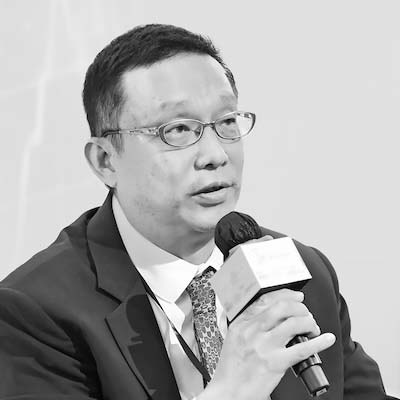Liu Dong first began to understand the Internet in 1995 when he attended the iNET conference as a representative of the Chinese community. “It felt like a connection of civilizations,” recalled Liu. Hosted by the Internet Society, iNet brought together experts from around the world to discuss the openness, interconnectivity, and collaborative nature of the Internet. “I clearly realized that the Internet could not only connect the entire world but also held immense potential to transform human society and our way of life,” stated Liu. Later in the year, he went on to found the Beijing Internet Institute to help people understand as well as shape the Internet. This impetus led him to engage in long-term collaboration with technical communities and policy teams, dedicated to building an open, interconnected Internet with greater carrying capacity.
Liu is best known for his persistent efforts throughout his thirty-plus-year career to enhance the Internet’s foundational carrying capacity, promoting global connectivity and sustainable development. His contributions include advancing the global large-scale deployment of IPv6, leading to the establishment of the world’s largest IPv6 testing laboratory, launching the world’s first IPv6 public DNS resolver, expanding the “Open Data Space Network,” and conducting research on high-speed network connections supporting AI agents.
“For the average user, the differences brought by IPv6 in daily life might not be noticeably perceptible. Yet its impact is profound and extensive,” Liu remarked. IPv6 enables more mobile devices, smart home appliances, cloud applications, and artificial intelligence services to access the Internet quickly, conveniently, and affordably. “This widespread adoption not only helps bridge the global digital divide but also lays a solid foundation for the sustainable development of the Internet.” Liu’s sole regret is that the IPv6 era did not arrive sooner. He believes this delay has, to some extent, exacerbated the digital divide. Nevertheless, he remains highly enthusiastic about the possibilities of the Internet.
“The Internet has evolved from connecting users and devices to connecting AI agents,” Liu said. “My mission is to continuously reinforce and expand this foundation, eliminate technical barriers, enable more data to flow across the Internet, and allow more people, more devices, and more intelligent agents to connect equally, efficiently, and securely on the same network, thereby driving the overall progress and sustainable development of the global Internet.”
Notable Professional Milestones
- Proposed the “Open Data Space Network,” initiating research on AI Agent interconnection and other areas to expand the Internet’s carrying capacity.
- Pioneered research and application of technologies such as Software-Defined Networking (SDN) and network virtualization, enhancing the flexibility of the Internet.
- Promoted the development of advanced courses on cutting-edge technologies like advanced networking and AI within universities, cultivating more internationally-oriented technical talent.
- Served for over a decade on the IEEE Standards Association Board of Governors, the New Standards Committee, and the Corporate Advisory Group (CAG), promoting the development of new standards.
- Influenced and participated in global Internet and data governance work within relevant working groups of organizations such as ICANN, IETF, and IGF.
- Promoted the global large-scale deployment of IPv6 through the global IPv6 Forum, accelerating its adoption in developing countries and advancing the IPv6-only global initiative.
- Launched the world’s first IPv6 public DNS resolver, 240c::6666, serving hundreds of millions of users.
- Led the construction of the world’s largest IPv6 testing laboratory, undertaking over 60% of global IPv6 testing.
- Guided and participated in the China Next Generation Internet (CNGI) demonstration project, promoting the development of national IPv6 demonstration cities.
- Initiated the construction of China’s first commercial IPv6 trial network, 6TNet, in 2002.
- Collaborated with the Internet Society to co-organize the first China INET conference in 1995.

